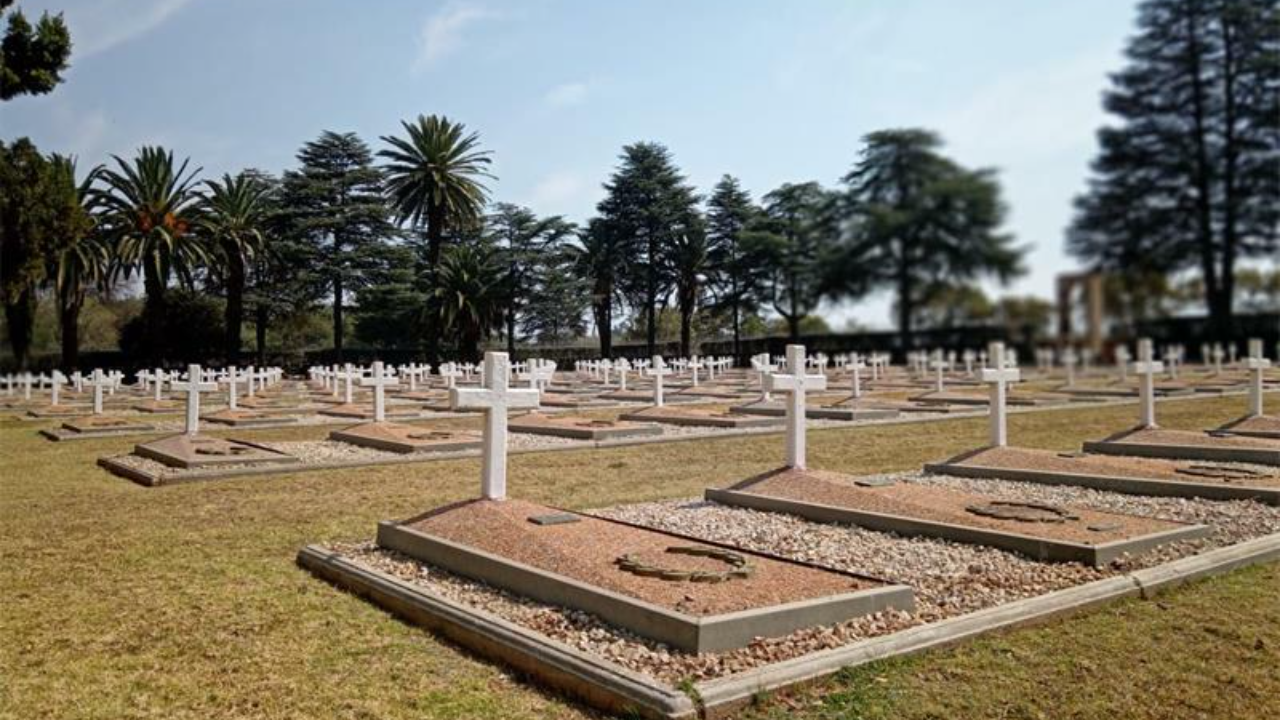News
Italian Community Joins Preservation Efforts for Cullinan POW Camp

The President of the Italian community in Gauteng and the Consulate General of Johannesburg have joined forces to protect and preserve the historical Italian prison camp located in Cullinan, South Africa. This collaborative effort is driven by a shared commitment to safeguarding the rich historical ties between Italy and South Africa, focusing on preserving the memory of the Italian Prisoners of War (POW) and their contributions to the local community.
Also Read: Johannesburg Requires R154 Billion to Tackle Road Infrastructure Backlog
On August 25, Ward 100 Councillor Johannes Bekker met with the Italian community representatives and the Consulate General to explore how this significant historical site and its cultural significance can be conserved for future generations.
One of the primary objectives is to preserve the cemetery where Italian POWs were laid to rest. Additionally, the aim is to commemorate the substantial value that Italian prisoners brought to the community. These historical sites are not only tourist attractions but also integral components of the shared heritage between Italy and South Africa, and they must remain in the collective memory and hearts of all.
The prison camp, known as “Zonderwater,” meaning “waterless place,” was once a sprawling facility with conical tents for the interned prisoners. Over time, the number of prisoners at the camp swelled significantly, with approximately 54,000 prisoners in April 1942 and 63,000 in 1943, ultimately reaching a staggering total of 90,000.
Remarkably, Zonderwater transformed into a fully-fledged prison city during this period. Through the initiative of the prisoners themselves and the compassionate leadership of camp commander Colonel Prinsloo, the prisoners managed to construct hospitals, sports facilities, theatres, chapels, and schools within the confines of the camp.
The Italian POWs exhibited remarkable resilience and resourcefulness. They engaged in cultural and sporting activities, as well as various forms of manufacturing. The camp authorities recognised the prisoners’ skills, thanks in part to the support provided by the Italian community in Pretoria and Johannesburg, which enabled the prisoners to enhance the quality of their creations.
The prisoners’ craftsmanship was of such high calibre that it led to exhibitions both within and outside the camp, showcasing toys, hand-carved objects, furniture, and wrought iron creations. Furthermore, the camp fostered artistic talent, with many prisoners excelling as painters, sculptors, theatre actors, and musicians.
Despite the grim backdrop of war, Zonderwater evolved into a vibrant and thriving place, far removed from the conventional image of a prison camp.
Ward 100 Councillor Johannes Bekker expressed his unwavering commitment to preserving this invaluable historical gem. He is determined to build upon the partnership between the Italian Consulate General of Johannesburg, the Italian community, local tour operators, and the town of Cullinan. This collaborative effort underscores the shared determination to honour the past and ensure that this unique chapter remains a living testament for future generations.
Source: Italian community agrees to help with preservation of Cullinan’s POW camp
Also Read:
Follow us on Google News
Photo: Supplied by Ridge Times






















